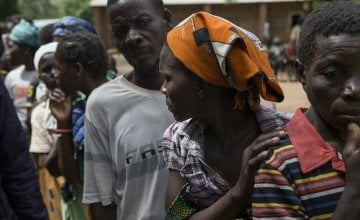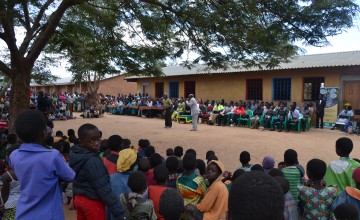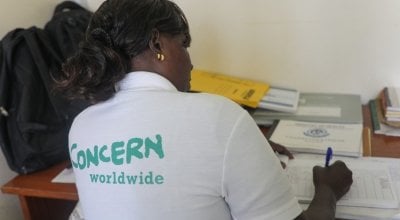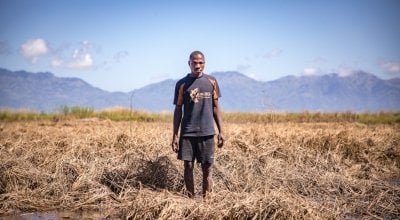
Read our 2023 annual report

Knowledge Hub
Malawi tunes in to end violence against women and girls

A new series of interactive radio plays is set to tackle violence against women and girls in Malawi.
The first episode of Let’s End Violence is being broadcast today as part of activities intended to mark the 16 Days of Activism Against Gender Based Violence worldwide. The series has been created to spark action by politicians and ordinary people. As the episodes are broadcast, listeners can call up and take on the roles of the characters, showing how new attitudes can bring about dramatic change.
Inspired by true stories
The series draws on the real experiences of women and girls in Malawi. It’s about a 13-year-old from a remote community. Her family have been badly affected by the El Niño food crisis – the harvest has been poor, and there is not enough to go round. The girl faces early marriage, but is eventually sent to live with relatives instead. However, after she arrives, she is raped by her uncle.
Her mother confronts the uncle and his wife but they deny the crime happened, and the uncle is protected by his high status in the community. The teenager’s mother goes to the police but faces bureaucracy and mountains of paperwork – the struggle is even harder because she can’t read.
Caoimhe de Barra, who runs Concern’s work in Malawi, says: “This is a story that happens frequently, sadly. Survivors of sexual violence and abuse are pushed back at every turn.”

Most women have experienced violence
Gender-based violence is a huge problem in Malawi. In a 2013 survey, 61 per cent of women and girls said they had experienced sexual violence, and 64 per cent had experienced physical violence. A culture of silence and other barriers to justice mean the actual rates may be much higher.
In addition, the country’s ongoing food crisis is creating more risks for women and girls. They face early and forced marriages, as families try get dowry payments or reduce their food bill. Women may have to sell sex to survive, and money shortages increase tensions within families – which can lead to violence.
Listeners have their say
The play’s first two episodes will be aired live, giving real people the chance to call in and take on the different parts – changing the outcome of the story. The final episode will be recorded in front of an audience of leaders and politicians, who will also get the chance to tag in and change the story for the better.
There are good reasons for using radio to tackle gender-based violence in Malawi. Radio doesn’t rely on audiences being able to read, and it is widely available in rural areas. The project is a partnership between Theatre for a Change, a local organisation that uses theatrical performance to tackle social issues, charities including Concern, and Malawi’s Irish embassy.
Caoimhe says the project aims to create change at many different levels – from rural communities to courtrooms.
We want to prompt the government to spend more money fighting gender-based violence. We’re asking them to boost support for the judicial system, and fund one-stop centres that give victims a safe place to report crimes.
Related content





